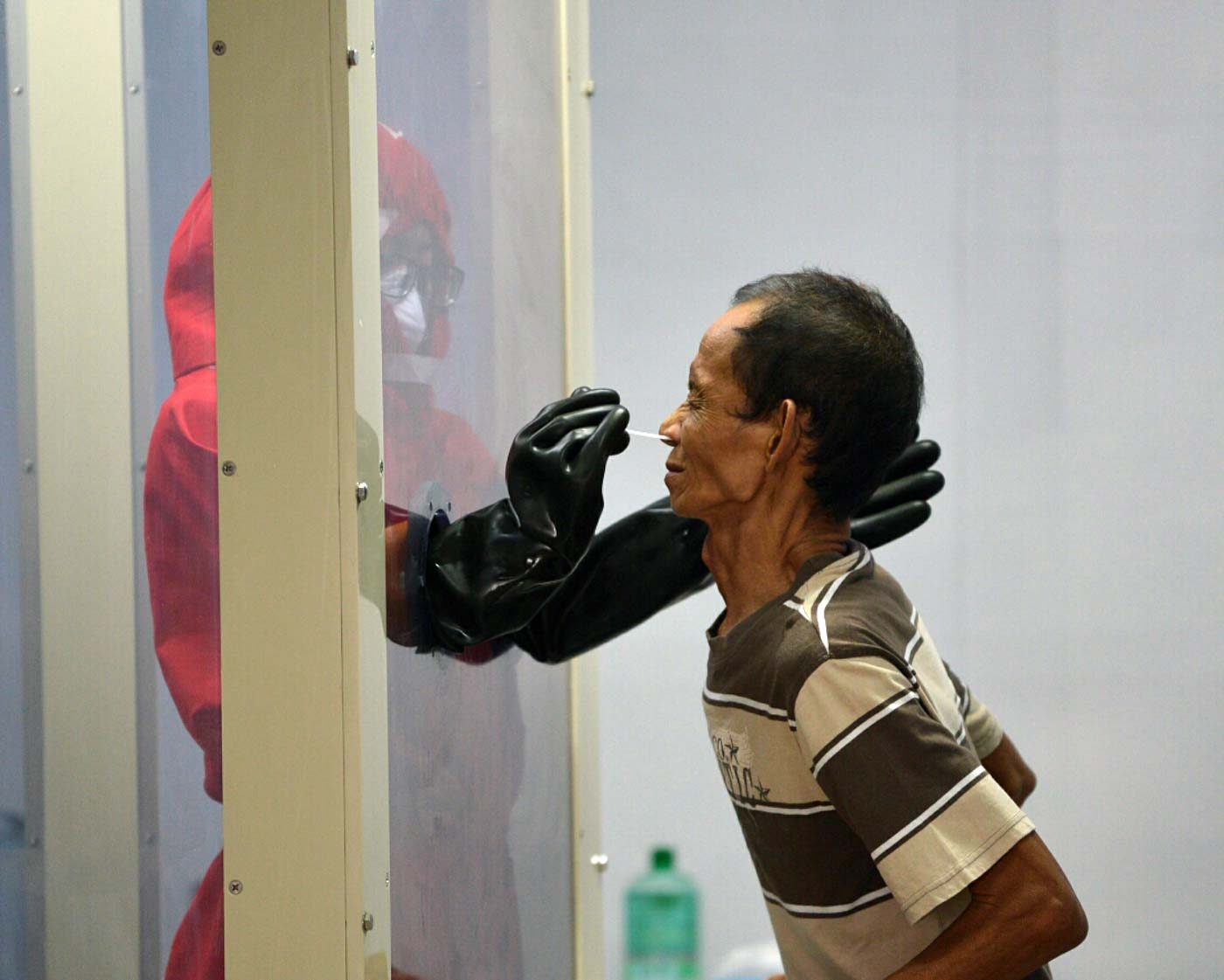SUMMARY
This is AI generated summarization, which may have errors. For context, always refer to the full article.

MANILA, Philippines – Senator Panfilo Lacson said the Department of Health (DOH) procured a much more expensive equipment used in the government’s coronavirus testing process, which amounted to P4 million each, against what the private sector uses at P1.7 million each.
At the Senate hearing on the government’s coronavirus measures on Tuesday, May 19, Lacson asked Health Secretary Francisco Duque III why his department had to procure 10 automated nucleic acid extractor produced by US-based Thermo Fisher Scientific worth a total of P40 million.
In Lacson’s presentation, the senator said that GoNegosyo, which has a testing initiative called “Project ARK,” bought an automated extractor by China-made Sansure. It’s only around P1.75 million each.
“Bakit mas mahal ang bili ng government kesa bili ng private sector? (Why is the government buying a more expensive equipment than the private sector?)” Lacson asked.
A nucleic acid extractor is where test kits are run after swab samples are taken from individuals. After the RNA extraction process, these are later sent for real-time polymerase chain reaction (PCR) analysis. In the case of the Philippines, extraction is usually done manually, which takes time.
Duque first dodged the question and said that the Department of Budget and Management’s Procurement Service (PS-DBM) should answer as they “did not directly procure” the machines. (READ: Where are testing centers for coronavirus in PH?)
But PS-DBM officer-in-charge and DBM Undersecretary Lloyd Christopher Lao said that the Department of Health’s request was “brand-specific.”
“Most of our labs are using manual. However, PS-DBM can only procure based on the APR – which is the agency purchase request – issued to us by the agency. If the APR is generic, we can bid to all providers whoever is cheapest. We will buy it. But brand-based, you can only buy that specific brand,” Lao explained.
Lacson questioned why DOH would recommend a brand. “Iniispecify ng agency kung ano ang brand? (The agency can specify what brand you will buy?”
“Based on our experience, under the procurement law, we don’t do that. But the Bayanihan Act allows for it. Because it should be based on the decision of the agency like DOH, RITM,” Lao said in a mix of English and Filipino.
“When they say, ‘Buy this.’ We can’t decide otherwise. If we buy another item, they might not accept it and not pay for it. We will have to be responsible to the Commission on Audit,” he added.
Lacson pressed further, to which Lao said it was the DOH who should answer the question.
Duque responded, “Ang Thermo Scientific is a US-brand compatible with the US real-time PCR machine which the Philippine labs have procured in the past. So incompatible kung puro Sansure ang bibilhin.”
(Thermo Scientific is a US-brand compatible with the US real-time PCR machine which Philippine labs have procured in the past. So it would be incompatible if we buy Sansure.)
Duque committed to senators that he will send relevant information to the Senate on Monday, May 25.
“I said I have already instructed my undersecretary for admin and finance to collate the documents. I know RITM (Research Institute for Tropical Medicine) and the end-user, the program managers, are the ones who actually provide the specification,” Duque said.
Under the Bayanihan to Heal as One Act, agencies can “undertake the procurement of the following as the need arises, in the most expeditious manner, as exemptions from the provisions of Republic Act No. 9184 and other relevant laws.”
The law lists protective and laboratory equipment, medical supplies, testing kits, and others “as may be determined by the DOH and other relevant goverrnment agencies.”
As of May 17, the Philippine government had tested 244,800 individuals. The latest number of confirmed coronavirus cases has reached close to 13,000 on Tuesday, with 837 deaths. – Rappler.com
Add a comment
How does this make you feel?
There are no comments yet. Add your comment to start the conversation.